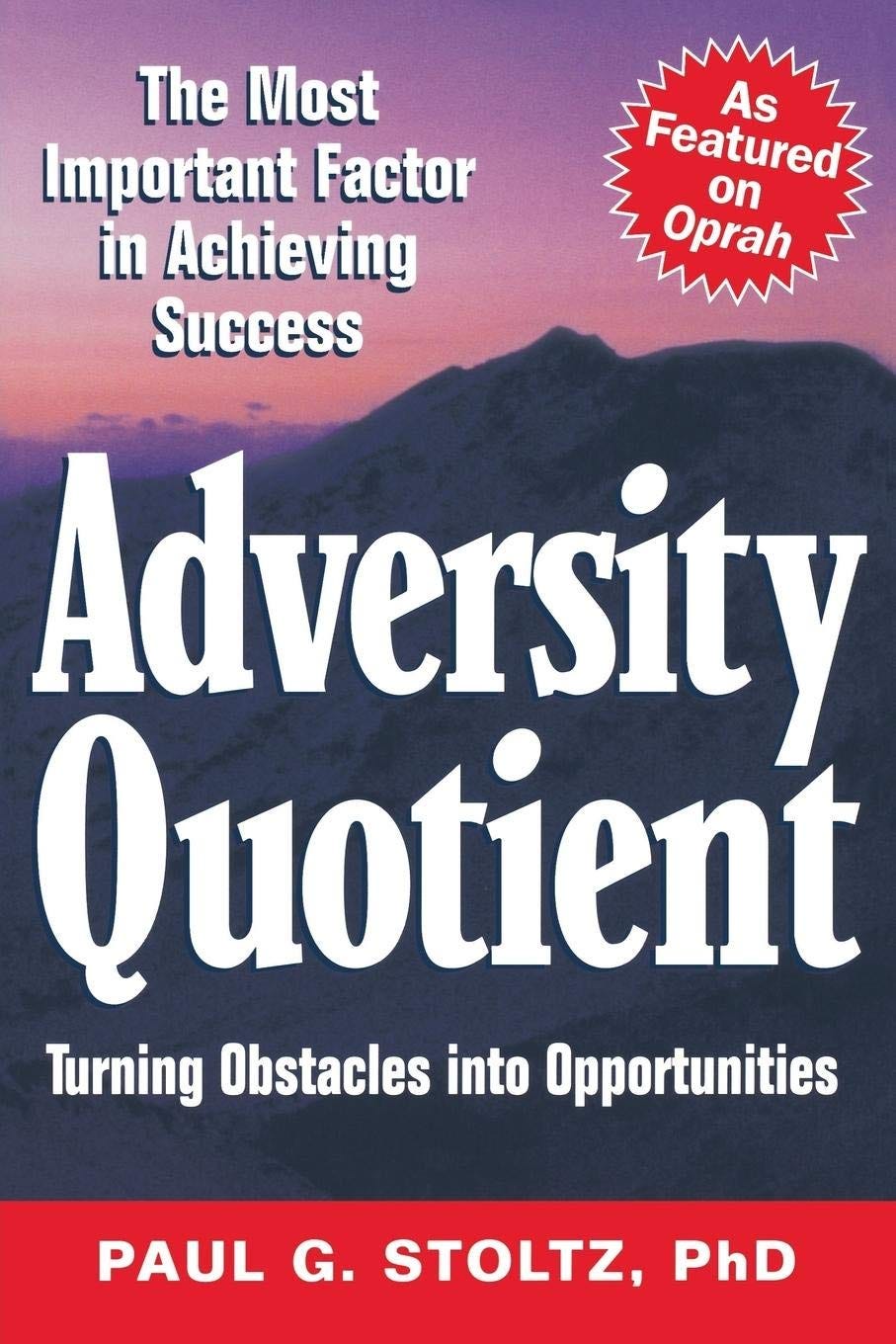Adversity Quotient:Turning Obstacles into Opportunities
How to stay calm and composed when dealing with the unpleasant challenges in life
Good afternoon, friends! Welcome to the ReadVault Club. I'm Tom Niklas, a seasoned writer and book reviewer. Please subscribe to me and join us in reading 52 books a year together.
I specialize in providing book reviews on personal growth, leadership, family and parenting, mental health, humanities, and history. I aim to assist busy citizens enjoying the benefits of reading books but struggling to find the time.
To help more people to read books easily, don't forget to like, share, and comment below. Your actions are helping more people.
Today, I will talk about this book called "Adversity Quotient: Turning Obstacles into Opportunities." Now, what exactly is the adversity quotient or AQ? It's your ability to deal with adversity and difficult situations life throws at you.
We often talk about IQ, right? But you'll find that just having a high IQ isn't enough. You could have someone who's a Harvard PhD. He is super clever and got into college at 13 years old. But he doesn't interact with others well. He might walk through crowds like they don't see other people around them. And one day, this person with just a high IQ but no emotional intelligence could end up making a bomb and killing many innocent people. So you see, having a high IQ doesn't necessarily make him a good person, right?
Then people realized, okay, IQ alone isn't enough, you need emotional intelligence or EQ too. EQ is about being aware of others, interacting well, considering their feelings, having patience, and so on. Someone with both high IQ and EQ seems great, but often such people can still become mediocre. They struggle when faced with real adversity and challenges. No matter how successful you are, you're bound to face setbacks, pressure, and obstacles on your journey, right? There's no such thing as an easy, smooth road to success.
So how do you view adversity when you face it? How do you deal with adversity? How do you cope with the psychological burden it brings? That's what your AQ measures. Many organizations and companies are acknowledging the significance of AQ and providing AQ training to their employees. And you'd be surprised at the big positive changes that can happen after AQ training in companies.
For instance, there was this secretary who used to react to anything difficult by saying "It's not my fault, no one told me" or "How can you blame me for this?" As long as she wasn't blamed, she was fine.
But after the AQ training, once when they were setting up for a conference session and realized the projector cable was missing, this secretary didn't complain. She just ran out to search everywhere in the building for a replacement cable. It was so difficult but she didn't give up until finally, just before the session was to start in the afternoon, she brought the needed cable to the room. Her boss was stunned, saying this wasn't like her usual behavior at all.
You see, when a small adversity like missing a projector cable happens before an important session, our first instinct is often to not take the blame, right? It shows you have low AQ. But with proper AQ training and methods to deal with adversity, you're able to find a solution instead of just complaining.
What is the Adversity Quotient?
So what is the AQ? It can be a measurement tool to see how your ability to handle adversity compares to others. It's a philosophy and lifestyle about how you view adversities in life. It's about having the resilience and ability to bounce back and learn from difficulties. And it provides methods to improve your AQ. So I will cover all these important aspects today.
Let me share a quick story to illustrate the power of a high AQ. There was this mountain climber named Beck Weathers who went to climb Mount Everest in the Himalayas. A huge group was climbing that day, and the weather was great initially. But as they neared the summit, suddenly a powerful storm hit. The winds were so strong, that everyone huddled down trying to shelter, some even just laid down on the mountain.
You know, lying down while mountain climbing is pretty much like choosing to die right there. Many people died that day, including some world-famous, elite guides. But Beck Weathers kept struggling towards the camp, knowing his physical limit was maybe 3-4 more hours. If he couldn't reach the camp in that window, he'd be done too. During those crucial few hours, he kept picturing his wife and kids, their warm home, telling himself "I can't die, I have to make it back to them." Driven by that, he finally saw a blue tent far ahead and the people there were able to give him hot water bottles and save his life.
It was a miracle that he survived that deadly storm when so many perished, including the most experienced guides. All because of his determination and his strong AQ that wouldn't let adversity defeat him.
Keep reading with a 7-day free trial
Subscribe to ReadVault to keep reading this post and get 7 days of free access to the full post archives.



